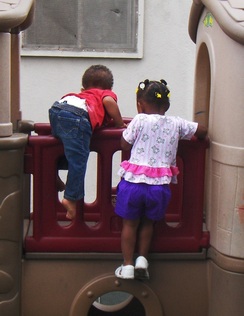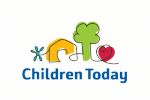 Keep climbing, you'll get there! Keep climbing, you'll get there! By Dora Jacildo Children Today is in the business of resilience. Our top priority is to increase the “protective factors”- attributes in individuals that help them deal more effectively with stressful events- that contribute to children’s ability to cope with very difficult situations. The individualized attention that our teaching staff give children is designed to increase their competence and confidence. The heightened focus on social/emotional well-being is intentional as is our carefully honed ability to form meaningful relationships with the children in our care. We know that we play a critical role in helping children grow into successful and caring adults. The lessons they will learn while at our Play House programs will serve them well into their futures. Resilience has been describe as “the ability to cope successfully no matter what hurdles one encounters and the ability to steer through serious life challenges and find ways to bounce back and to thrive.” We know that every one of us is born with the capacity for resilience and individuals who respond to difficult life situations with resilience are healthier and live longer, are happier in their relationships, are more successful in school and work, and are less likely to get depressed. We come into our work with a clear understanding of the protective factors that contribute to a child’s ability to become resilient and make increasing those factors part of our service delivery model. Protective factors fall into three categories: factors within the individual, factors within the family, and factors within the community. (Challenging Behavior in Young Children, 2007) Individual Resilient children are sociable. They have the ability to engage the people around them in a positive way. Because they get lots of practice socializing, they have good communication skills, and they tend to be flexible and empathetic. These children are able to plan, to think critically and creatively, and to foresee consequences. They know how to ask for help, too. They believe in themselves and are able to take charge of their own lives. They are independent, competent, self-confident, and self-reliant. They can control their impulses and do what needs to be done, even in difficult surroundings. These children also have varied talents, interests, activities, and coping strategies. They choose environments that reinforce their dispositions and reward their competencies. And, they ascribe their success to their own efforts and abilities, not sheer luck. Above all, they are optimists. They have goals and aspirations. They believe in achievement and are motivated to persevere and succeed. Family The most important protective factor of all is a competent, caring person who is absolutely committed to the child, whom the child can love and trust in return. Children need to have at least one loving and available person who supports and accepts them unconditionally. When a parent or guardian is unable to fulfill this role, another adult in the child’s life can satisfy this need. It also helps when families have high expectations and give children the support they need to fulfill those expectations. Community When children receive support from outside the family, they have a chance to feel connected to other people and the core values of the community. Community support comes to the child in the form of relationships. Like a parent, caring and competent teachers, neighbors, or friends can act as positive role models and make a child feel loved and valued. By believing in the child, expecting a lot from him, and supporting him as he extends his reach, a caring adult can help him to believe in himself and to develop competence and confidence. A caring adult can also help a child expand his ability to cope with stress by creating a supportive environment and gradually enlarging the challenges he must face. It helps if a child’s school is a warm, safe, and predictable place, with consistent teachers, peers, schedules, and limit-setting. When a child knows where to go, what to do, and who will take care of him, he is free to be himself and to focus on learning. Children enrolled in our programs are guaranteed that they will have a sense of belonging, they will have a primary caregiver who is absolutely crazy about and committed to them, and they will develop the skills necessary to increase their self-esteem and self-concept. They will be protected, loved, and nurtured in a way that openly communicates to them that they are important in this community and they have valuable contributions to make. Comments are closed.
|
AuthorVarious members of the Children Today staff contribute to these blog posts. Archives
July 2024
Categories |
